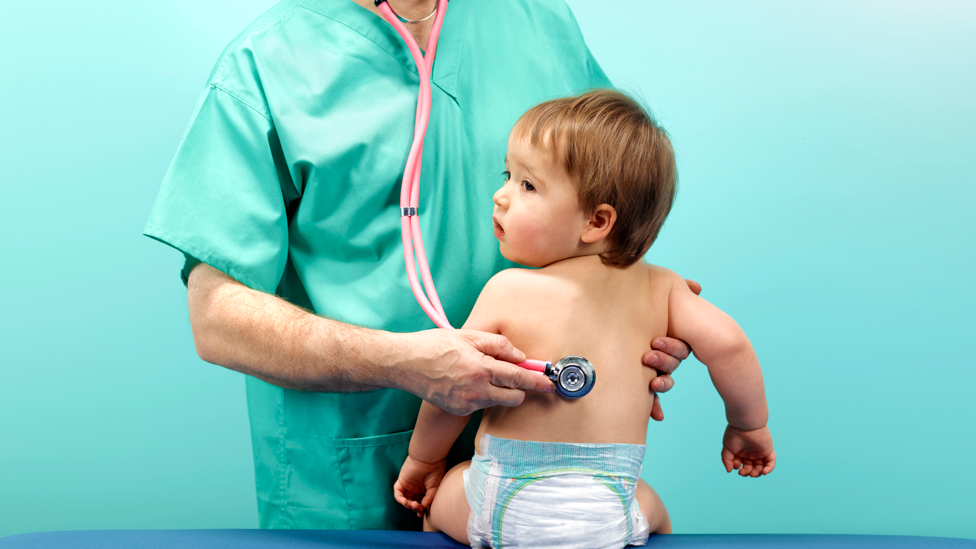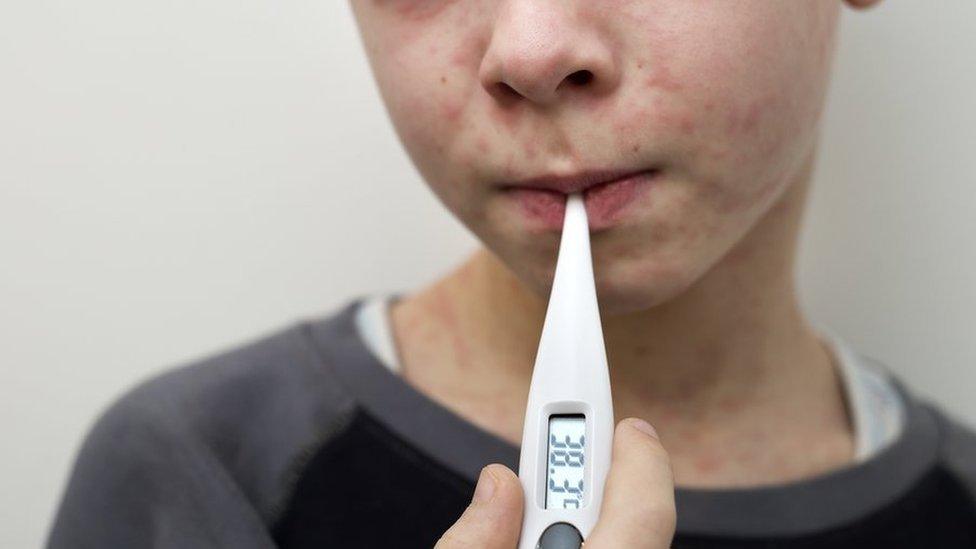Vaccination plea as whooping cough cases reach 11-year high
- Published
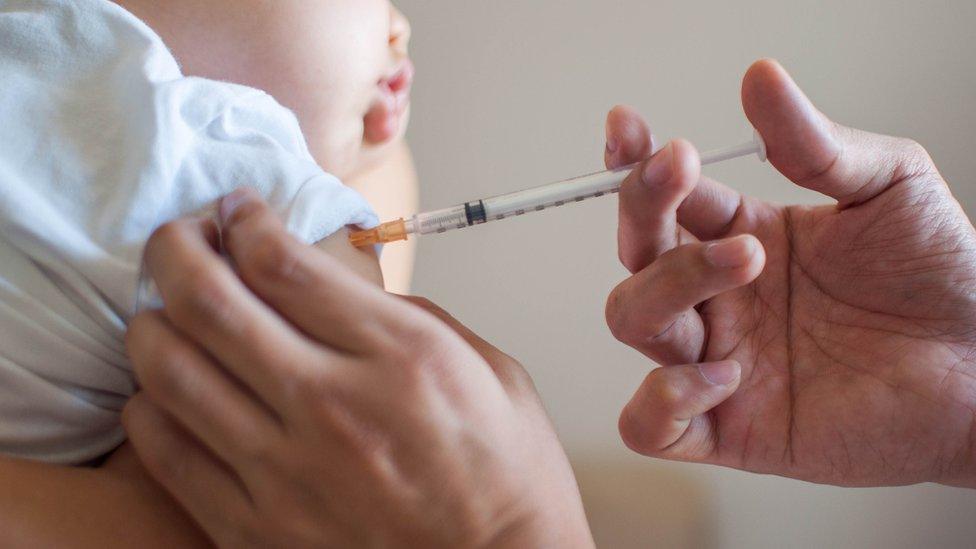
Public health officials have urged all pregnant women and parents of babies and young children to ensure they are vaccinated
Whooping cough cases in Wales have hit an 11-year high, following concerns about rising cases from the start of the year.
There were 122 cases reported to Public Health Wales in the week ending 18 March.
That is the highest weekly total since the end of 2012.
Public health officials have urged all pregnant women and parents of babies and young children to ensure they are vaccinated.
Whooping cough, known as pertussis, is a bacterial infection of the lungs and breathing tubes and is highly contagious.
It is spread by breathing in small droplets in the air from other people's coughs and sneezes.
In the last six weeks, cases have been reported in all but one of Wales' local authority areas, with the highest numbers in Cardiff, Bridgend, Gwynedd, Powys, Swansea and Vale of Glamorgan.
So far in 2024 there have been more cases reported than in the previous five years combined.
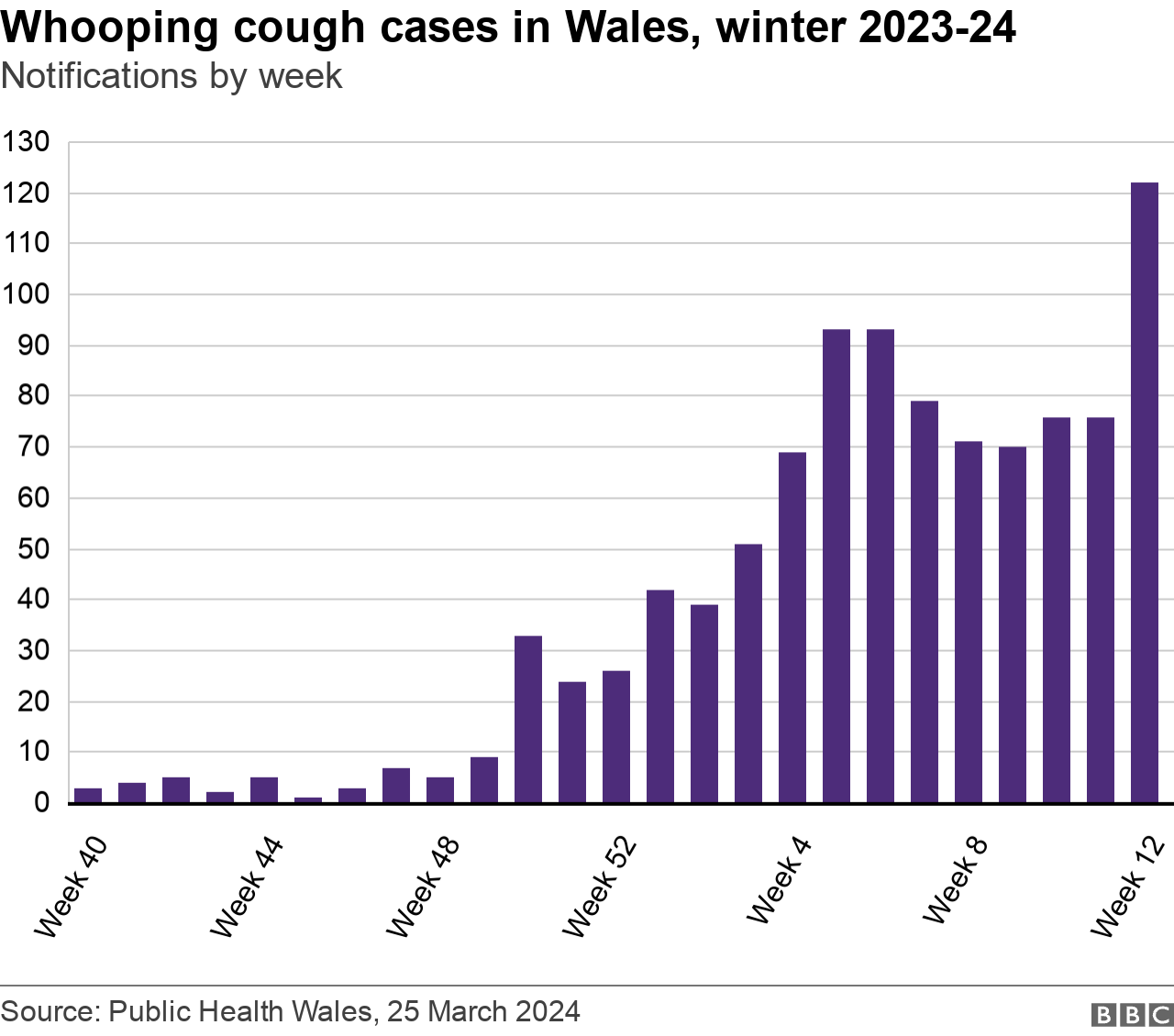
Christopher Williams, consultant epidemiologist in health protection for Public Health Wales, said: "Notifications of whooping cough in Wales were falling but have risen again this week, and Public Health Wales is actively monitoring the situation."
"Whooping cough has waves of increased infection every three to four years, and following reduced circulation in 2020-2022, current notifications are at levels not seen since 2012 and 2015."
The most recent figures show 95% of babies being vaccinated and 70% of pregnant women.
Cases have also been rising in London and the south east, East Midlands and Yorkshire and Humber in recent weeks.
What is whooping cough?
It can present similarly to a cold initially but lead to coughing bouts, according to the NHS., external
The name comes from a "whoop" sound which some sufferers get, when they gasp for breath between coughs and coughing can last for several weeks.
People are recommended to get rest and take plenty of fluids but may be prescribed antibiotics if in the infectious early stages.
Dr Williams said the whooping cough vaccine was included in the "6-in-1 vaccine" given to babies at eight, 12 and 16 weeks, as well as a pre-school booster dose at around three years and four months.
"Since 2013 pregnant women have been offered a pertussis (whooping cough) vaccination from weeks 16-32 of pregnancy, to protect newborn babies before they receive their 6 in 1 vaccine," he said.
"We would urge all pregnant women and parents of babies and young children to ensure they take up their offer of vaccination when given, or to ask their GP, midwife or health visitor if they believe they may not have had it."
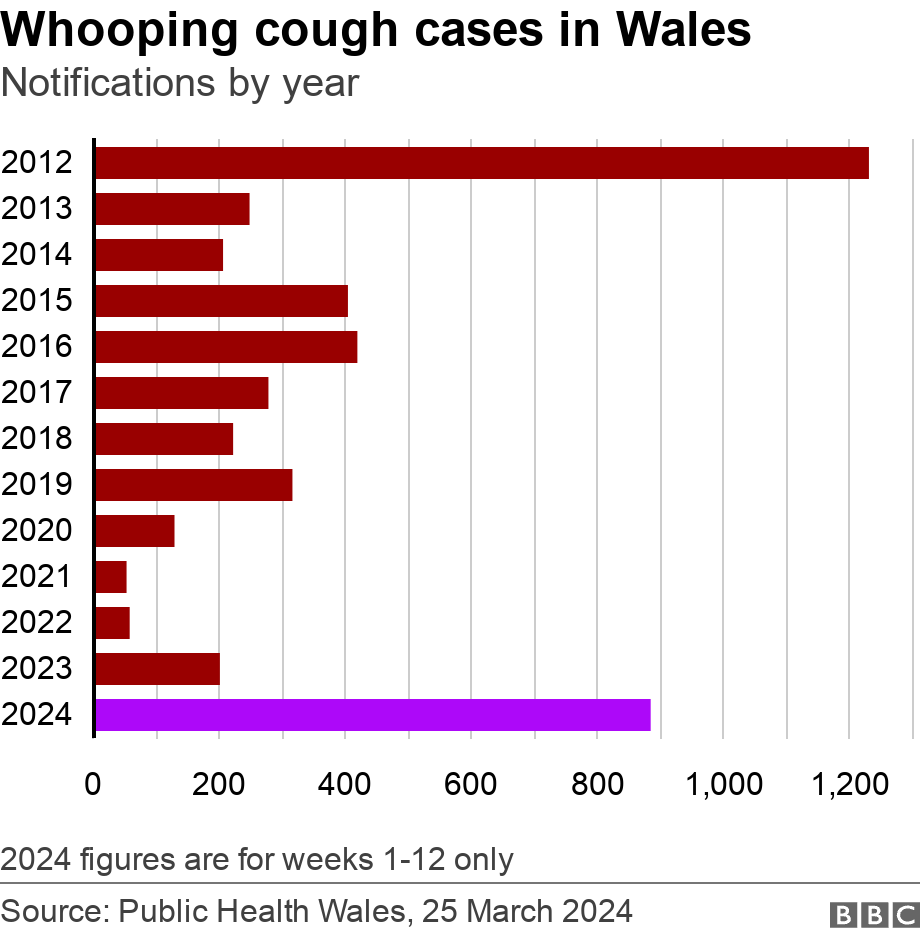
Related topics
- Published23 January 2024
